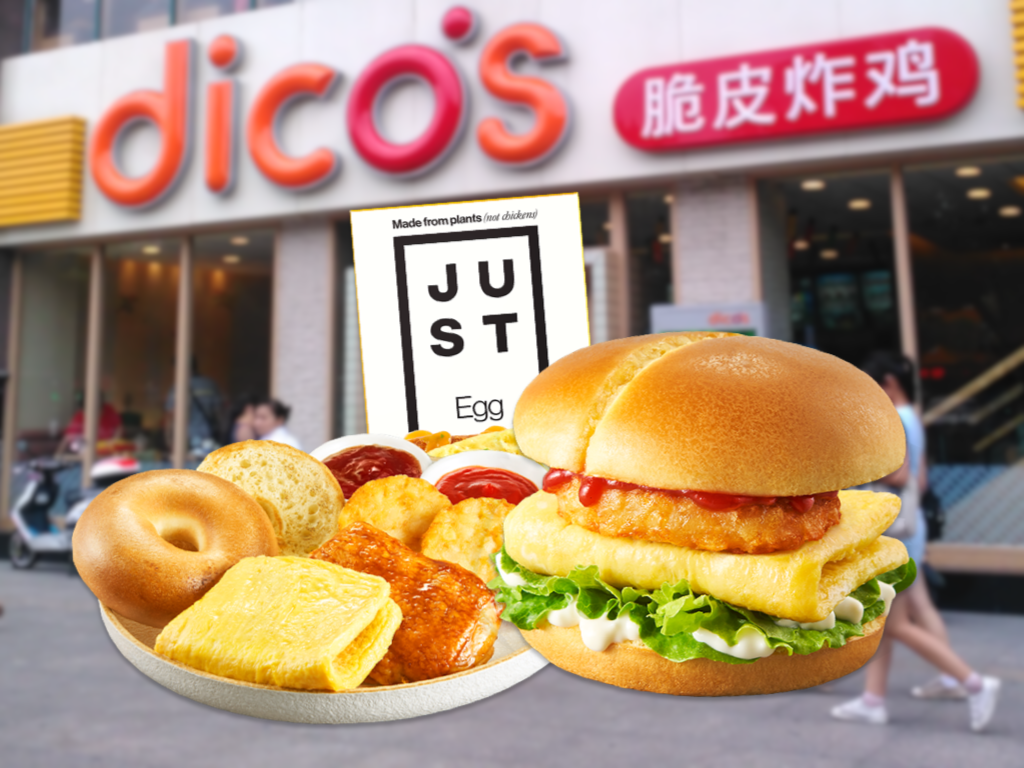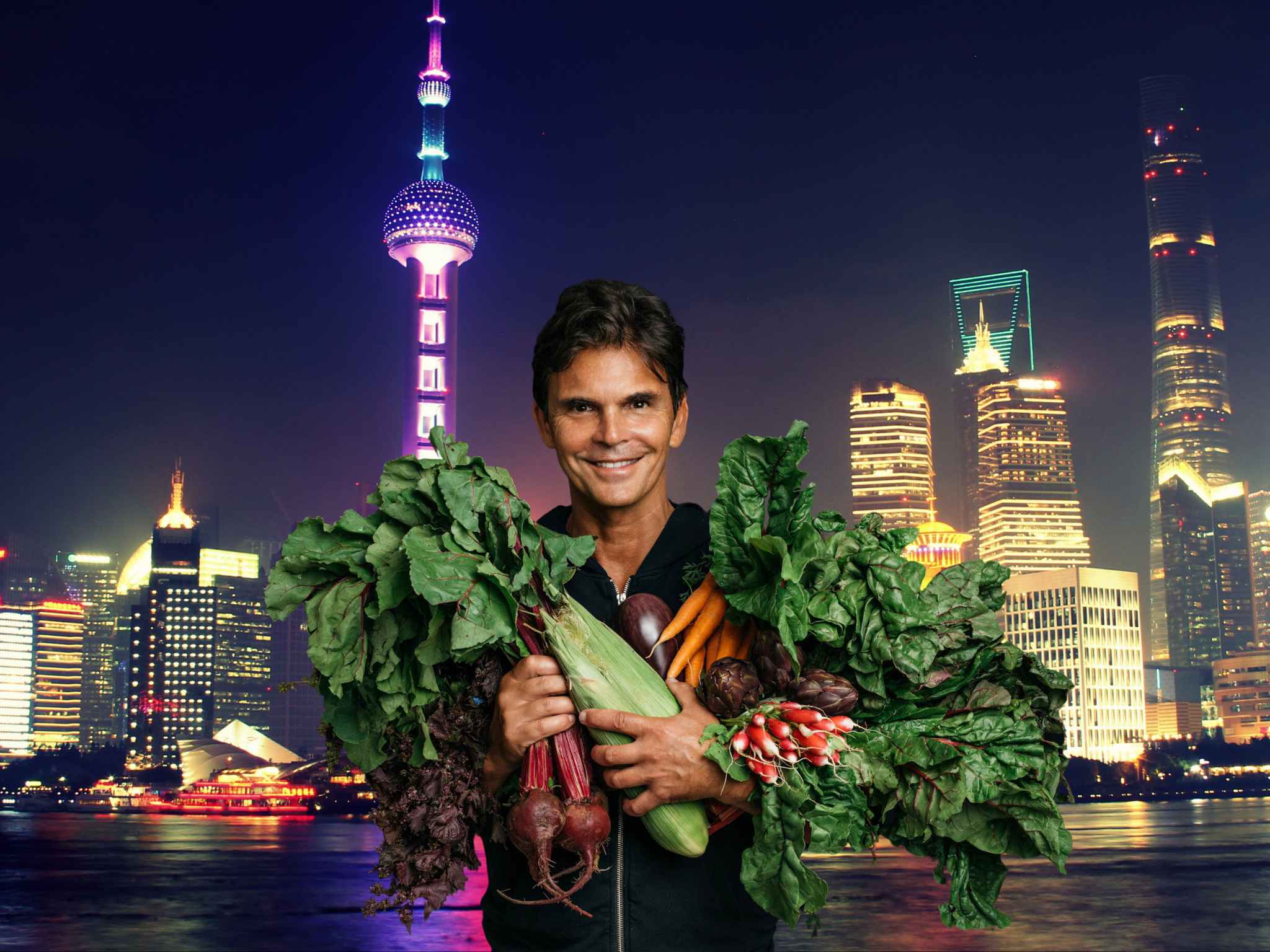Exclusive: Vegan Celebrity Chef Matthew Kenney Expands His Plant City Empire to China
6 Mins Read
Matthew Kenney, the vegan author and celebrity chef behind Plant Food + Wine, is expanding his empire to China with food halls inspired by his Plant City F&B concept, with the help of global scale-up firm The Wellness Agency.
The man behind Double Zero, Plant Food + Wine, Besina, New Burger, Make Out and Plant City – whose business spans five continents and 22 major cities – is now embarking on one of his largest projects yet. Teaming up with The Wellness Agency, a firm that helps wellness brands to scale globally, vegan celebrity chef Matthew Kenney is bringing his empire to China.
Kenney is working on five food halls with a similar concept to his Providence, Rhode Island-based Plant City – touted to be the world’s largest vegan food hall, co-founded with entrepreneur Kim Anderson) – in five markets: Guangzhou, Shanghai, Chengdu, Shenzhen and Macau. Each of the food courts will have 12 to 14 plant-based restaurants, with some individual concepts including VEG’D (vegan fast food), Double Zero (wood-fired pizza) and Ayre (Ayurvedic cuisine).
In addition to the restaurants, there will be food and lifestyle retail experiences, as well as experiential concepts. “As the public perception of plant-based eating continues to evolve and gain popularity around the world, I look forward to expanding Plant City across China,” said Kenney. “Our goal is to provide a one-stop destination for plant-based eating that will be appreciated by vegans, omnivores and carnivores alike.”
Celebrating local chefs and flavours

“With talented chefs like Matthew Kenney leading the charge, millions of people around the world are adopting plant-based diets for ethical, environmental, and health reasons,” added The Wellness Agency founder and CEO Jay Faires. “The Chinese market, in particular, is seeing massive growth… We’re excited to expand Matthew Kenney’s Plant City across China, offering an array of new healthful, innovative, and delicious plant-based culinary options to the country’s denizens.”
Faires said that Kenney will be significantly involved, “if not in operations, then in the partnership”, adding that the chef will be “a big part” of the creative process of the food halls (alongside Anderson), which “will likely integrate some local plant-based chefs”. And there will be a big focus on Asian cuisines through their interpretation. The food courts are set to begin opening by 2025.
In terms of funding, investors are yet to be determined and may be involved on a project-by-project basis. “We met with several large real estate and retail developers while we were there, specifically in Hong Kong, Shenzhen and Chengdu,” said Faires, adding that the project will potentially be open to collaborations with local food brands, chefs and food personalities.
Matthew Kenney’s celebrity status

Kenney rose to fame in the 90s with his namesake restaurant Matthew’s, a year after whose opening he was named Food & Wine magazine’s Best New Chef in 1994. He opened further restaurants Mezze, Monzu Canteen, Commune and Commissary, which closed down due to the post-9/11 economic crisis.
A pioneer of the raw food movement, he was a founding partner of Pure Food and Wine, the raw vegan eatery that attracted controversy in the 2010s for failing to pay its staff (Kenney left the restaurant in 2005). Since then, he has established his culinary academies and lifestyle brand Matthew Kenney Cuisine. Most recently, Kenney – who has authored 14 books – partnered with entrepreneur Max Koenig to launch Earth Company, a whole-food plant-based ready meal brand.
In 2016, Kenney told Green Queen about his ‘Crafting the Future of Food’ mantra. “The work we’re doing is part of something larger… a mission to change the way the world thinks about its food choices,” he explained. “We are educating ourselves and our students to make sound ingredient choices, to support more sustainable processes and to promote a plant-based lifestyle that’s delicious, healthful, innovative and accessible. This is the future of food.”
Kenney’s Plant Food + Wine at the Four Seasons in Los Angeles is frequented by famous personalities like Taylor Swift, Oprah Winfrey and James Cameron, while his Double Zero pizzeria counts the likes of Jay-Z and Chris Martin as regulars. Could the China expansion see a touch of celebrity too?
Faires met with Margaret Zhang, editor-in-chief of Vogue China, who approached Matthew to head up the culinary side of some major events that would involve over 100 celebrities and influencers. Vogue has a new spot in the Forbidden City palace complex in Beijing, where a tentpole event on November 24 is set to be attended by Vogue editor-in-chief Anna Wintour. Kenney has cooked for her events going back to the mid-90s in New York City, said Faires.
Might there be a rekindling?
The China plant-based opportunity

Recent reporting by China Dialogue, a non-profit “dedicated to promoting a common understanding of China’s environmental challenges”, suggests that Chinese consumers are increasingly interested in “safer and more sustainable foods”. A 2022 survey of 579 Chinese consumers in four major cities showed that 85% of respondents had tried plant-based meat alternatives and “were willing to pay more for these products”.
According to analysis published by Singapore-based social enterprise Asia Research and Engagement, “to align with a climate-safe scenario, by 2060 China would rely on alternative protein sources for 50% of its protein consumption”, which it breaks down as follows: plant-based proteins (24%), fermentation-derived protein (16%), and cultivated meat/seafood (10%).
Previous data from Euromonitor projected the vegan and vegetarian food sector would be worth $12 billion this year (2023) and a 2020 Dupont study predicted a 200% increase in demand for meat alternatives within five years. These early estimates have not quite materialised and China’s plant-based meat market remains small, with only a handful of plant-based meat alternative brands on shelves.
However, data about other types of plant-based products is encouraging. In a 2022 report by Asymmetrics Research about China’s Alternative Protein Landscape, the authors identified plant-based milk and RTD beverages, plant-based yoghurts, plant-based ready meals, plant-based functional foods and plant-based “meat” snacks” as the most promising product categories for brands looking to target an urban Chinese consumer demographic that was willing to spend on healthy and safe food products.
In the same report, Green Monday and OmniFoods co-founder and CEO David Yeung said that Chinese customers love to explore new food products to buy and are looking for new and trustworthy brands, while Haofood CEO Astrid Prajogo said that while consumer awareness about plant-based meat was improving, taste and price remained the major purchasing drivers. Xiaomin Zhang, cofounder and CE) at MetaMeat said that “the combination of plant-based meat products and prepared dishes is an important direction for the B2C market.” This bodes well for Kenney and Co.
With additional China reporting and research by Sonalie Figueiras.




